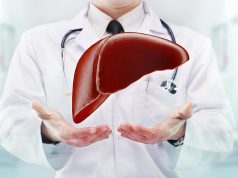The rate of offers per candidate represents a threefold increase compared with 2015
By Lori Solomon HealthDay Reporter
WEDNESDAY, May 7, 2025 (HealthDay News) — The number of kidney transplants performed annually in the United States has increased steadily, but with decreasing allocation efficiency, according to a study published online in the April issue of Kidney International Reports.
Sumit Mohan, M.D., from the Vagelos College of Physicians and Surgeons at Columbia University in New York City, and colleagues described transplant and mortality rates for 249,145 incident wait-listed adult candidates from 2015 to 2022 following changes in kidney allocation policy. The analysis included 180,039 adults who received at least one offer.
The researchers found that 37.7 percent received a deceased donor kidney allograft, 14.7 percent received a living donor allograft, 7.4 percent died while on the waiting list, 12.7 percent were removed, and 27.5 percent were still wait-listed by the study end period. There was an overall decline in candidates’ median number of days to receiving their first offer (from 20 in 2015 to five in 2022). During the study period, candidates who died while on the waiting list received a median of 25 offers, and candidates who were removed received a median of 22 offers. There was a sharp increase in the total number of offers generated by the match-run algorithm, including those from nonutilized kidneys (from 7,911,688 offers in 2015 to 13,682,914 in 2019 and to 29,332,516 in 2022).
“These findings emphasize the inefficiencies inherent in our current allocation algorithms and the need to rethink how wait-listed patients are prioritized for a given deceased donor organ in order to maximize the probability of appropriate utilization of lifesaving organs,” the authors write.
Several authors disclosed ties to relevant organizations.
Copyright © 2025 HealthDay. All rights reserved.








